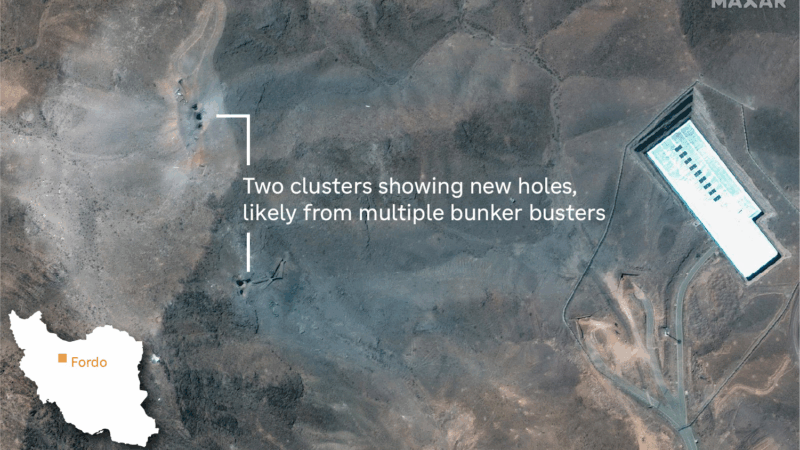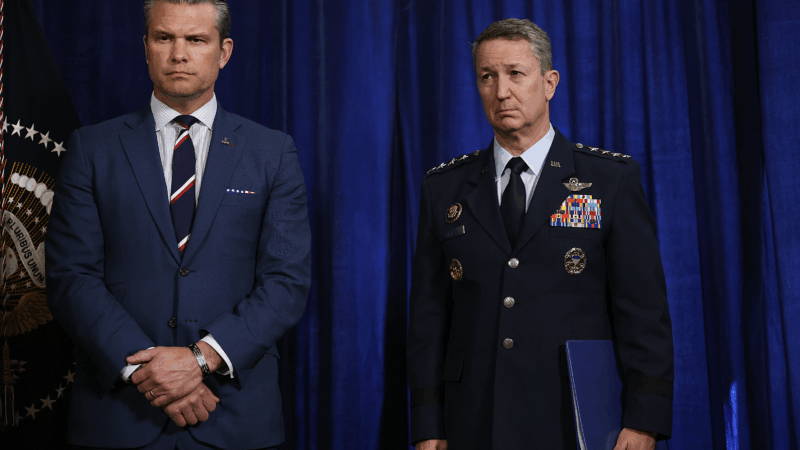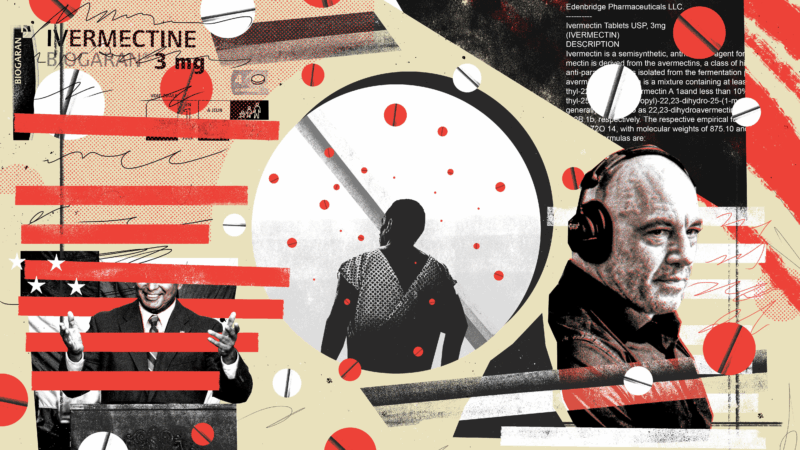Early intel assessment says Iran’s nuclear program was only set back ‘a few months’
A U.S. official who was not authorized to speak publicly has confirmed early intelligence assessments by the Defense Intelligence Agency saying that the massive U.S. air campaign against three Iran nuclear sites on Saturday night did not “obliterate” Iran’s nuclear enrichment program as President Trump claimed but instead set it back “a few months.”
CNN first published news of the DIA assessment.
The official told NPR that military officials provided an early assessment of the intel to select senators — including Virginia’s Mark Warner, the leading Democrat on the Senate Intelligence Committee.
“I have a whole lot of questions for this administration,” Warner told All Things Considered. “What are the next steps? How do we make sure that there’s not Iran racing now to a dirty bomb? These are questions that we and frankly, the American people, deserve answers to.”
The full Senate was slated to get a classified briefing from the administration Tuesday afternoon, but it was cancelled and moved later in the week.
White House press secretary Karoline Leavitt slammed the CNN report, saying on social media that it was “flat-out wrong,” and maintaining that a key nuclear facility had been destroyed. She said the leak was a “clear attempt to demean President Trump.”
The White House did not immediately respond to NPR’s request for further comment.
The assessment comes less than a day after a ceasefire declared by Trump between Israel and Iran went into effect, with both sides agreeing to end the fighting. Israel has said repeatedly that its goal in the war had been to stop Iran’s nuclear program, and prevent it from the ability to make a nuclear weapon — a goal long-shared by the U.S.
Speaking on Air Force One earlier Tuesday, Trump maintained that goal had been met.
“They’re not going to have enrichment and they’re not going to have a nuclear weapon,” he said, speaking about Iran. “And I’ll tell you, the last thing on their minds is nuclear weapons. They don’t even want to think about nuclear.”
But officials within Iran directly contradicted that.
In a statement on X in Farsi, Iran’s Speaker of Parliament Mohammad Bagher Ghalibaf said that Iran would “completely disregard” Israel’s demands to stop enriching uranium, a key component to a nuclear weapon. He said Iran will continue to proceed in their own self interests.
The head of Iran’s Atomic Energy Agency Hamad Eslami also seemed to confirm that, telling a semi-official Iranian news agency that they were still assessing the damage from Saturday night’s attacks, but had prepared in advance. “Our plan is to not allow any interruption in the production and service process,” he said.
The U.S. used massive bunker-buster bombs on Saturday to target three of Iran’s key nuclear facilities, including one called Fordo, built deep inside a mountain.
Speaking at the White House after those strikes, Trump called the strikes a “spectacular military success.”
“Iran’s key nuclear enrichment facilities have been completely and totally obliterated,” he said.
But the U.S. official NPR spoke to said that the intelligence assessment concluded there had been “limited” damage to the critical infrastructure at the Fordo facility in particular.
Independent experts NPR talked to in the day after the U.S. strikes came to similar conclusions, after analyzing commercial satellite imagery, saying that Iran’s nuclear enterprise is far from destroyed.
“At the end of the day there are some really important things that haven’t been hit,” says Jeffrey Lewis, a professor at the Middlebury Institute of International Studies at Monterey, who tracks Iran’s nuclear facilities. “If this ends here, it’s a really incomplete strike.”
Experts have long warned that Iran’s nuclear ability doesn’t just lie in its facilities, but also in its deep knowledge – something much more difficult to attack.
“The simple fact is that Israel was never going to be able to eliminate Iran’s capacity to build nuclear weapons entirely if Iranians choose to do so,” says Kenneth Pollack, Vice President for policy at the Middle East Institute. “The knowledge is just too widespread within the Iranian system.”
NPR’s Tom Bowman contributed to this report from Washington, D.C.
Some Middle East flights resume, but thousands of travelers are still stranded by war
Limited flights out of the Middle East resumed on Monday. But hundreds of thousands of travelers are still stranded in the region after attacks on Iran by the U.S. and Israel.
‘Hamnet’ star Jessie Buckley looks for the ‘shadowy bits’ of her characters
Buckley has been nominated for a best actress Oscar for her portrayal of William Shakespeare's wife in Hamnet. The film "brought me into this next chapter of my life as a mother," Buckley says.
How, who, and why: NPR flips its famous letters to defend the right to be curious
NPR is standing up for the public's right to ask hard questions in a national campaign dubbed "For your right to be curious." At NPR's headquarters, on billboards in New York City, Chicago, and Washington, D.C., and across social media, NPR's three iconic letters transform into "how," "who," and "why" — a bold declaration of its commitment to fight for Americans' right to ask questions both big and small.
Hegseth: ‘We didn’t start this war but under President Trump we’re finishing it’
The remarks are the first to reporters since the U.S.-Israeli military operations against Iran began Saturday despite weeks of talks designed to stave off a conflict.
Ivermectin is making a post-pandemic comeback, among cancer patients
The anti-parasitic drug became a household name during the COVID-19 pandemic, and it is now being embraced as an alternative treatment for cancer. It is as politically polarizing as ever.
Rep. Adam Smith on the U.S. strikes on Iran and the debate over Trump’s war powers
NPR's Leila Fadel asks Democratic Rep. Adam Smith of Washington, the ranking member on the House Armed Services Committee, about President Trump's unilateral authorization to strike Iran.







